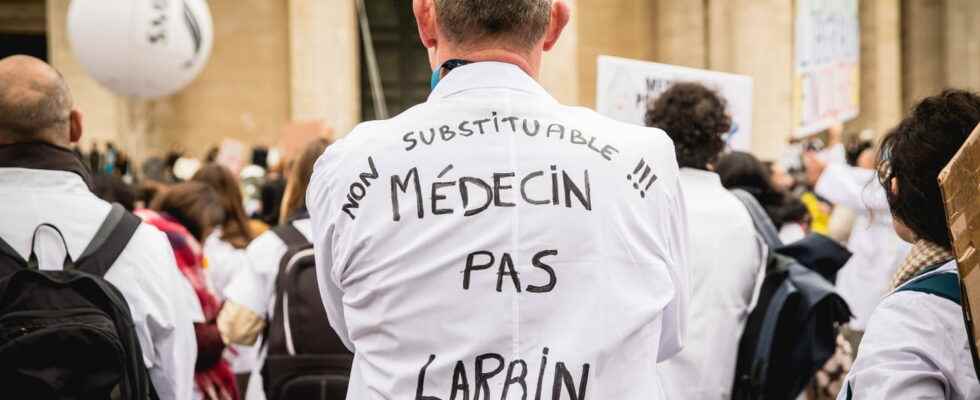The strike movement of general practitioners is weakening. The collective “Doctors for tomorrow” has announced certain measures for the month of January.
The strike of general practitioners which lasted several weeks was not renewed. However, some doctors remain mobilized to warn “Doctors for tomorrow”: the strikes will be able to continue on Saturday morning but also of the PDSA, namely doctors working during the permanence of care therefore in the evening, at night but also weekends.
The end of the protest movement initiated by the collective “Doctors for tomorrow” is not yet complete. On his website It is specified that “Operation Anti Burn-Out” began on January 9, 2023. This operation focuses on various points including the balance between professional life and office hours, advocating for example not to take a patient in between. Another valued measure, no act of work for free, even for a prescription, should be carried out. Other measures were announced throughout January in addition to the on-call doctors’ strike:
- January 9: “Operation Anti Burn Out”
- January 16: Non-supply of health spaces by doctors
- January 23: Challenge to the 2021 ROSP (Remuneration based on public health objectives)
- February 1: Withdrawal from the CPTS (Territorial Professional Health Community)
The strike in the hospitals?
The doctors’ strike has inspired hospitals since the FO-Santé union has called for an “unlimited strike” in French hospitals from Tuesday January 10. The demands do not differ from the liberal doctors but the substance of the requirements remains the same: an improvement in working conditions and more financial recognition.
Why are liberal doctors in crisis?
The members of the “Doctors for tomorrow” collective are calling for an increase in the prices of consultations, a reduction in their administrative tasks or even incentive measures to reduce the number of medical deserts. The first claim is the one that crystallizes the most tensions. The doctors are demanding a doubling of the amount of the visit, going from 25 to 50€.
It is difficult to make such a claim heard by public opinion in a context of soaring daily prices and when access to care is not given to everyone. But for professionals, it’s not about getting rich. “It’s to have better working conditions” indicated Morgane Migoux, general practitioner in Condat-sur-Vienne (Haute-Vienne), to France 3 New Aquitaine, highlighting the possibility, thus, of recruiting a medical secretary in charge of administrative tasks, “which is impossible if you are an isolated doctor, or only two in a cabinet”, according to his words. Same story with his colleague from Tarn-et-Garonne: “We could hire, buy equipment. They could better manage appointments, provide basic care advice. This would give us the freedom to do more care.”
This subject, as well as the other claims, which are currently the subject of discussions between the liberal doctors and the health insurance, negotiations for the new agreement between the two parties for the next five years being in progress. It must be signed by March 2023.
President’s health announcements
During his greetings to health actors on January 6, the President of the Republic announced measures to try to fill a sector in the midst of a crisis. Although he did not announce the revaluation of the consultation from 25 euros to 50 euros as demanded by certain general practitioners, Emmanuel Macron warned that certain doctors would be better paid, in particular those who “ensure the permanence of care and those who take care of taking on new patients” and “those who are going to be ready to train young people”. To relieve caregivers, the Head of State warned that many caregivers were going to be recruited: 10,000 by 2024, he envisaged.
These announcements did not convince a large part of the liberal doctors. Ludovic Toro, general practitioner expressed his dissatisfaction at the microphone ofEuropean 1 : “The problem of the hospital, which was the lack of beds and caregivers, Emmanuel Macron does not bring any solution to it” he regretted.
